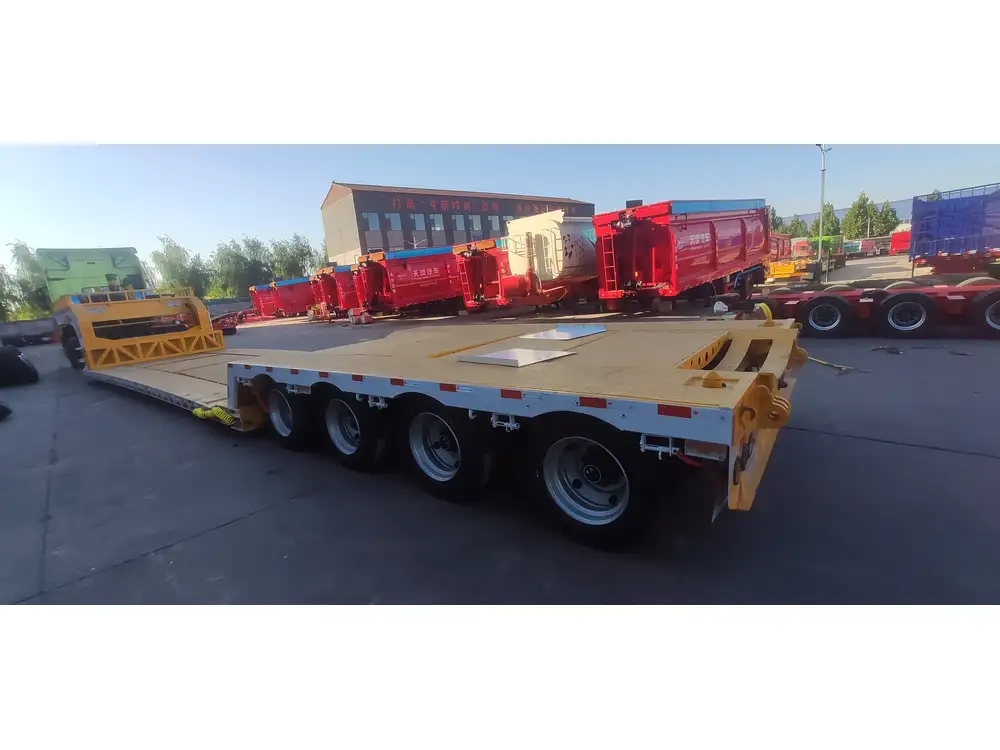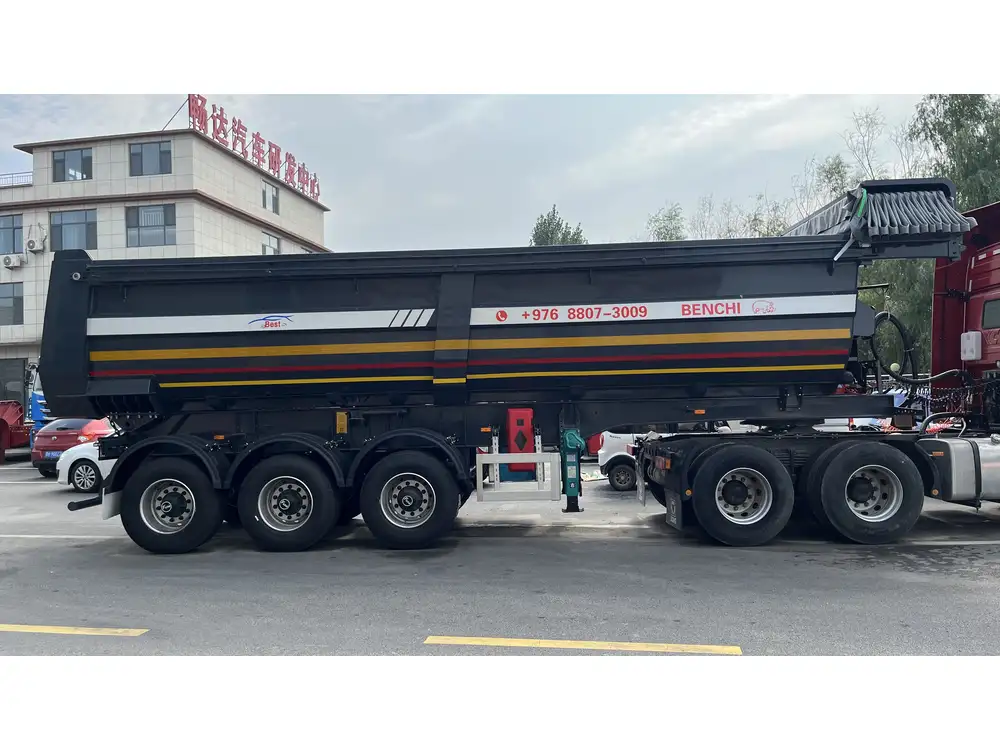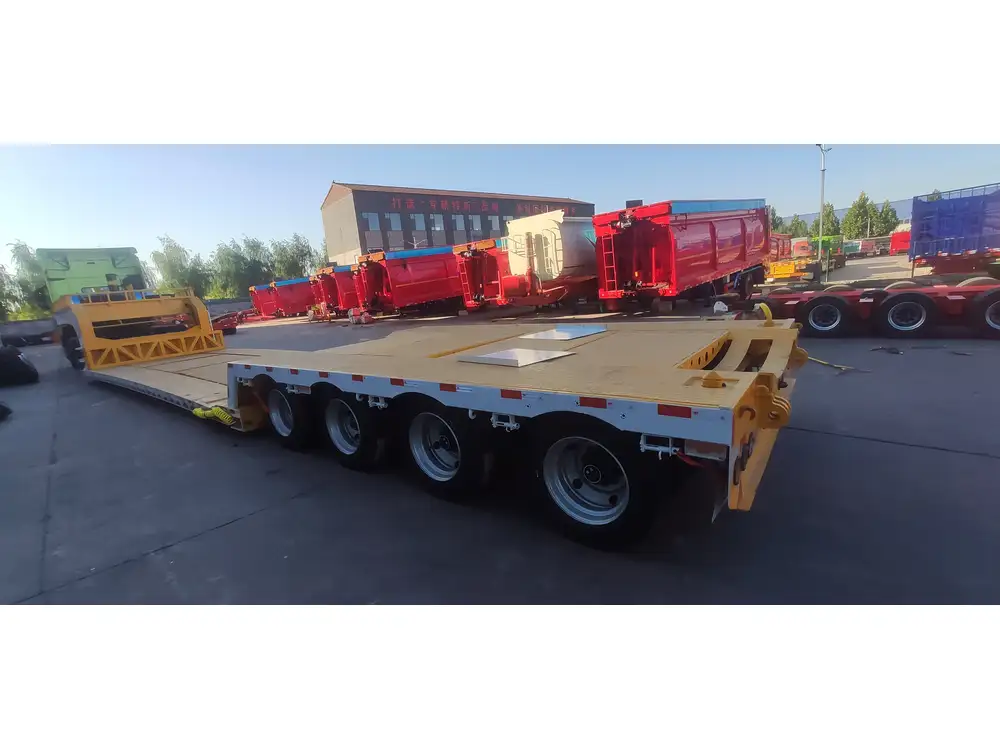In the world of transportation, the capabilities of vehicles are often put to the test, leading to questions about their limits and potential. Among the most intriguing inquiries is whether a pickup truck can tow a semi-trailer. This guide aims to explore this topic in-depth, providing valuable insights for manufacturers, transport operators, and truck enthusiasts alike.
Understanding Pickup Trucks and Semi-Trailers
What Defines a Semi-Trailer?
Before delving into towing capacities, it is essential to understand what a semi-trailer is. A semi-trailer is a type of trailer that relies on a tractor unit (the truck) for support. Unlike a full trailer, which has wheels at both ends, a semi-trailer has wheels only at the back, with the front being coupled to the truck’s hitch. Semi-trailers are available in various types, including:
- Flatbed Trailers: Ideal for transporting oversized loads.
- Reefer Trailers: Equipped with refrigeration for perishable goods.
- Dry Van Trailers: Enclosed and secure, perfect for non-perishable cargo.

The Role of Pickup Trucks
Pickup trucks are known for their versatility, blending the capability of a truck with passenger comfort. They come in various sizes—light-duty (like the Ford F-150) to heavy-duty pickups (like the RAM 3500). Their towing capacities can range significantly based on their configuration, engine choice, and modifications.
Towing Capacities: A Key Factor
What Does Towing Capacity Mean?
The towing capacity of a vehicle is the maximum weight it can safely tow. This encompasses not only the weight of the trailer itself but also any cargo loaded onto it. Towing capacity is generally classified into:
- Gross Vehicle Weight Rating (GVWR): The maximum total weight of a vehicle, including cargo.
- Gross Combined Weight Rating (GCWR): The maximum allowable weight of a vehicle and its attached trailer.

Pickup Truck Towing Capacity Examples
Here’s a table showcasing the towing capacities for common pickup truck models:
| Pickup Truck Model | Engine Type | Max Towing Capacity |
|---|---|---|
| Ford F-150 | 3.5L V6 | Up to 14,000 lbs |
| Chevrolet Silverado 1500 | 6.2L V8 | Up to 13,300 lbs |
| RAM 1500 | 5.7L V8 | Up to 12,750 lbs |
| Toyota Tundra | 5.7L V8 | Up to 10,200 lbs |
| Ford Super Duty F-250 | 6.7L V8 | Up to 20,000 lbs |
Semi-Trailer Weights
Understanding the weights involved is crucial. The total weight of a semi-trailer can vary, but here are typical values:
- Empty Dry Van: ~15,000 lbs
- Reefer Trailer: ~17,000 lbs
- Flatbed Trailer: ~15,500 lbs
The maximum legal weight for a loaded semi-trailer is often around 80,000 lbs, depending on road regulations.
Can a Pickup Tow a Semi-Trailer?

Key Considerations
To determine if a pickup truck can tow a semi-trailer, several factors must be considered:
Towing Capacity: As demonstrated in the previous sections, an average pickup might not have the towing capacity to move a fully loaded semi-trailer due to weight limits.
Trailer Weight: Understanding the total weight of the semi-trailer (including load) is fundamental. Most pickups are equipped to tow lighter trailers, making it challenging to safely manage heavier semi-trailer loads.
Hitch Specifications: A standard pickup truck may require heavy-duty hitch modifications to accommodate a semi-trailer. These modifications might involve changing the axle type or strengthening the towing hitch.
Braking Systems: Towing heavier trailers necessitates advanced braking systems. Certain pickups might not have the required brakes to effectively manage the additional weight.
Safety Concerns: Beyond just capability, safety is critical. Towing a semi-trailer with a pickup that isn’t rated for it can lead to dangerous situations, including loss of control or accidents.
Typical Scenarios
In many practical scenarios:
- Light Loads: If the pickup truck is towing a smaller, unloaded semi-trailer, it might be feasible, especially if it’s a heavy-duty variant capable of managing increased stress.
- Heavy Loads: Attempting to tow a fully loaded semi-trailer is generally inadvisable, as most standard pickups simply don’t have the power or structural integrity to handle such weight safely.
Advantages of Utilizing Appropriate Vehicles

Enhanced Performance
Using a vehicle designed specifically for towing a semi-trailer, such as a commercial truck or heavy-duty tow vehicle, ensures enhanced performance and safety.
Power: Commercial trucks are equipped with powerful engines capable of managing the torque needed for heavy towing.
Durability: Designed for heavy loads, these vehicles have a reinforced chassis and axles, making them far superior in strength and reliability.
Safety Features
Commercial vehicles typically come with advanced safety features tailored for towing, such as:
Trailer Braking Systems: Integrated braking systems that synchronize the truck and trailer for safe deceleration.
Stability Control Systems: These systems help mitigate sway, making the towing experience safer, particularly in windy conditions or during lane changes.
Advanced Traction Control: It prevents wheel slip under heavy loads, crucial when towing a semi-trailer.
Alternatives to Towing with a Pickup
If your requirements necessitate towing a semi-trailer, consider the following alternatives:

Commercial Vehicles
Opt for a tractor unit specifically designed for semi-trailer towing. These vehicles are built to handle the rigors of heavy hauling and are equipped with powerful engines and robust suspension systems.
Heavy-Duty Trucks
For less frequent use but still needing the strength, consider investing in a heavy-duty truck capable of efficiently managing specific towing needs.
Rental Services
If only a short-term need, many companies offer rental services for commercial vehicles capable of towing semi-trailers. This can be a cost-effective option without compromising safety.

Conclusion: Making an Informed Decision
Determining whether a pickup can tow a semi-trailer encompasses more than just the capacity. It involves evaluating the pickup type, trailer weight, necessary modifications, safety features, and the intended use. For those serious about towing heavy loads, relying on dedicated commercial vehicles is the best way to ensure safety, reliability, and performance.
By understanding the complexities and ensuring safety through the right equipment, you can navigate the challenges of transportation efficiently. Whether for personal use or industrial purposes, choosing the right vehicle makes all the difference in achieving a successful haul.
Further Reading and Resources
- Weight Distribution Hitches: Understanding how these can augment your towing capabilities.
- Regulations on Towing: State and federal regulations can govern what can be legally towed. Familiarize yourself with these rules.
- Tips for Safe Towing: Guidelines for keeping your towing experience safe and efficient.
By arming yourself with knowledge and choosing the right tools, the challenges of towing can become manageable, if not straightforward.



